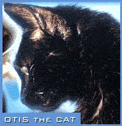Marco Adda—part of a team of researchers who conducted a recently-published study of so-called “free-ranging dogs” and pet dogs in Bali, Indonesia—recalls his early years, including being born in Milan, and growing up in Naples, where there were packs of stray dogs. In some ways, this proved to be a formative experience (and foreshadowed, as it turns out, the study of Bali dogs), and Adda remembers feeling a profound kinship with these strays, sometimes leaving behind his buddies who were playing soccer to spend time with these homeless canines, instinctively understanding how to behave around them and the importance of projecting calm. Hearing him discuss those experiences, it’s little wonder that Adda went on to become a canine researcher, a dog trainer, a dog behavior consultant, and educator. Adda explains the mission and focus of the International Society of Anthrozoology, of which he’s a member. Addressing the Bali dog study, he outlines the history of free-ranging dogs on the island, which appears to date back no less than 3000 years, describing the types of dogs that have long inhabited the area, and how over the last three decades, in particular, there has been an influx of other dogs (Labs, German Shepherds, etc.) brought by humans moving there. Adda notes that the study initially involved 112 dogs’ owners or caretakers filling
In some ways, this proved to be a formative experience (and foreshadowed, as it turns out, the study of Bali dogs), and Adda remembers feeling a profound kinship with these strays, sometimes leaving behind his buddies who were playing soccer to spend time with these homeless canines, instinctively understanding how to behave around them and the importance of projecting calm. Hearing him discuss those experiences, it’s little wonder that Adda went on to become a canine researcher, a dog trainer, a dog behavior consultant, and educator. Adda explains the mission and focus of the International Society of Anthrozoology, of which he’s a member. Addressing the Bali dog study, he outlines the history of free-ranging dogs on the island, which appears to date back no less than 3000 years, describing the types of dogs that have long inhabited the area, and how over the last three decades, in particular, there has been an influx of other dogs (Labs, German Shepherds, etc.) brought by humans moving there. Adda notes that the study initially involved 112 dogs’ owners or caretakers filling out questionnaires, a number that was winnowed down (some dogs were too young, others were not purely Bali dogs, etc.) to 75: 60 free-ranging and 15 pets/companion animals. The findings suggest that a change in lifestyle—in this case, being adopted and living in a confined environment—has negative consequences on some dog characteristics, including making them more excitable, more aggressive, and elevating their prey drive. Adda was careful to point out that the dogs’ adjustment to the new environment (that is, free-ranging dogs to being pets or companion animals) likely takes longer, and that if the study were repeated with the same dogs in 5-10 years, the results would likely be quite different. (http://marcoadda.com, https://www.facebook.com/marco.adda.7, https://www.facebook.com/Marco-Adda-Anthrozoology-Education-and-Canines-537490186297659/)
out questionnaires, a number that was winnowed down (some dogs were too young, others were not purely Bali dogs, etc.) to 75: 60 free-ranging and 15 pets/companion animals. The findings suggest that a change in lifestyle—in this case, being adopted and living in a confined environment—has negative consequences on some dog characteristics, including making them more excitable, more aggressive, and elevating their prey drive. Adda was careful to point out that the dogs’ adjustment to the new environment (that is, free-ranging dogs to being pets or companion animals) likely takes longer, and that if the study were repeated with the same dogs in 5-10 years, the results would likely be quite different. (http://marcoadda.com, https://www.facebook.com/marco.adda.7, https://www.facebook.com/Marco-Adda-Anthrozoology-Education-and-Canines-537490186297659/)
 ALSO: I spoke with Emily Kapes, curator at The James Museum of Western & Wildlife Art, in St. Petersburg. Kapes described the history and mission of this new museum, highlighting its current exhibition, “Art and the Animal,” which features 125 paintings and sculptures depicting a wide array of animals. (https://thejamesmuseum.org)
ALSO: I spoke with Emily Kapes, curator at The James Museum of Western & Wildlife Art, in St. Petersburg. Kapes described the history and mission of this new museum, highlighting its current exhibition, “Art and the Animal,” which features 125 paintings and sculptures depicting a wide array of animals. (https://thejamesmuseum.org)
COMEDY CORNER: Josh Gondelman’s “We Adopted A Pug” (http://www.joshgondelman.com)
MUSIC: Rebekah Pulley’s “Talking Animals Theme,” instrumentals
NAME THAT ANIMAL TUNE: We didn’t play “Name That Animal Tune” today.
AUDIO ARCHIVE:
Listen Online Now:




